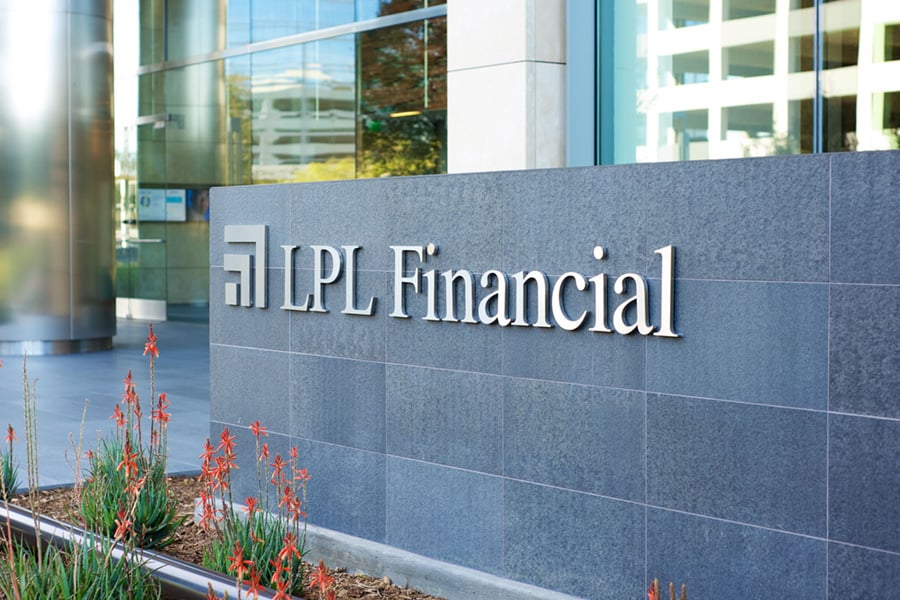

The wealth management and financial advice industries are working through the challenges created by COVID-19 and will eventually see deep changes in the pandemic's aftermath.
That's the assessment of Dan Arnold, CEO of LPL Financial, the largest independent broker-dealer with 16,763 reps and advisers.
"We believe there's a real ripe opportunity, that this creates an opening to think about things in a different way and opens up the playing field and ... do experimentation, to do things that you may never have done otherwise," said Arnold, who made his comments late Thursday on a conference call with analysts to discuss his firm's first quarter earnings.
"There could be jobs that you didn't think were possible to do remotely from home that all of a sudden by doing it, you now have a different point of view on that," Arnold said. "And that shapes how you think about managing your workforce, flexible schedules, how you access talent and even how you manage your real estate portfolio."
Paying for real estate is one of the biggest costs for brokerage firms like LPL, and with firms reporting that 90% or more of their workforce is now operating from home, broker-dealers will likely be looking to pare back on that expense in the future.
"We believe the whole use of robotics, [artificial intelligence] and digital tools will be different going forward, people's thinking around outsourcing and supply chains will be changed forever by this," he said. "There will be more to emerge. It's early."
LPL added 299 net new advisers during the first three months of 2020, more than three times the amount for the same period last year, when the firm reported 80 net new advisers. The firm has been aggressively recruiting financial advisers and reps, as well as making small acquisitions.
LPL’s total brokerage and advisory assets by the end of March decreased 2% year-over-year to $670 billion, while the S&P 500 index was down 9% year-over-year, according to the company.

President meets with ‘highly overrated globalist’ at the White House.

A new proposal could end the ban on promoting client reviews in states like California and Connecticut, giving state-registered advisors a level playing field with their SEC-registered peers.

Morningstar research data show improved retirement trajectories for self-directors and allocators placed in managed accounts.

Some in the industry say that more UBS financial advisors this year will be heading for the exits.

The Wall Street giant has blasted data middlemen as digital freeloaders, but tech firms and consumer advocates are pushing back.
Orion's Tom Wilson on delivering coordinated, high-touch service in a world where returns alone no longer set you apart.
Barely a decade old, registered index-linked annuities have quickly surged in popularity, thanks to their unique blend of protection and growth potential—an appealing option for investors looking to chart a steadier course through today's choppy market waters, says Myles Lambert, Brighthouse Financial.
